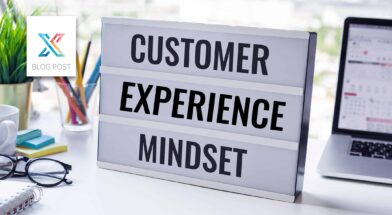You may think, what? I know it sounds crazy, but it’s true.
I read an article recently that shared research from Dr. Daniel Kahneman’s “Peak/End” study and supported ensuring that each of your client’s interactions with your team is positive. In the study, Dr. Kahneman compared two groups of patients. The first group received a painful colonoscopy and the other received an equally painful colonoscopy that lasted longer. The feedback they got indicated that the patients preferred the longer one (the one with more total pain). No kidding.
The only difference between the two procedures was that the last three minutes of the longer colonoscopy had no inflation or suction of the colon (shudder) and was therefore less painful than the other parts of the procedure. Kahneman’s conclusion was that the patient’s memory of the procedure was influenced by the “peak” and the “end.”
So how does this Kahneman’s Peak/End study relate to your firm’s client experience (CX) strategy? Well hopefully your client’s peak experience of working with your firm is positive. However, we all know that things can go wrong. And, situations may arise during a project outside of your direct control even though your client holds you responsible. That makes it critical that the last experience your client has working with you on a project (or beyond) is good.
Unless you limit your client’s interaction to just a few individuals (or just you), how can you ensure your client’s “end” experience is positive.
Develop a CX Playbook for your firm.
Would a McDonald’s employee turn to their shift leader and say, “How do you think we ought to cook the fries today?” Probably not. Why change something that has worked before. In the world of CX, your team’s understanding of what their response should be in different situations is probably not as clear cut as the McDonald’s employee. The good news – with a CX Playbook, it can be.
Your CX Playbook will be iterated. Here are three elements of an effective playbook
Clear Definition of your CX Culture
This is an important first step in building your CX Playbook. Every firm will have a different definition and there are no ‘right’ or ‘wrong’ definitions. The important element is that you have one and that everyone on your team understands what it is.
A strong CX Playbook will be a balance of important guidelines with value given to leadership and employee creativity. You don’t want your guidelines to be overly prescriptive. You do want your team, based on the firm’s culture and CX goals, to know how to respond in different situations.
Be Concise
To achieve the results you want throughout your firm and to get everyone on the same cultural page, you must make a persuasive argument to your whole team. It's tempting to try and capture everything in one document. This can overwhelm and difficult to integrate into day-to-day behaviors. Consider having your CX Playbook concentrate at the level of policies, programs, and/or processes.
Consider bringing your CX Playbook to a meeting with your mid-level managers. Get their feedback. It is easy to be ‘overly’ comprehensive when we try not to leave out important information. As you try and figure out just how much detail must be included in your playbook, remember that you will want your CX Playbook to be non-negotiable.
Make your playbook the law (aka non-negotiable)
One reason to be concise in creating your CX Playbook is that the playbook must become the law. You want to create zipper relationships to encourage multiple team members to engage with your clients (as appropriate). With that in mind, you never know which touchpoint will be the ‘end’ experience for your client on a project.
Your CX Playbook should cover the most important elements of your CX initiative including your expectations for how your team will execute on them. And, you want to have a way to track/measure that everyone is following the playbook. If it is too complex or difficult to measure outcomes, it will be difficult to enforce.
Your CX Playbook lets you finish strong
We all hear about companies like Amazon, Southwest Airlines, and Chick fil A. The truth is, customers sometimes have a bad experience with these companies, so something you wish didn’t happen will probably happen at some point. Having your team aligned on the experience you want your clients to have in different situations lets you have a strong finish or end regardless of your client’s peak experience.
(This post first appeared on the CXps 2018 website. Heather Denny is the CEO of McDonald York Building Company in Raleigh, North Carolina. She is a featured speaker at this year's CXps event doing a 2-hour workshop on Wednesday morning. In her workshop, she'll go through each of the steps, provide time for attendees to break into groups to brainstorm ideas, and everyone will receive a complete copy of a CX Playbook to take back to their team.)






